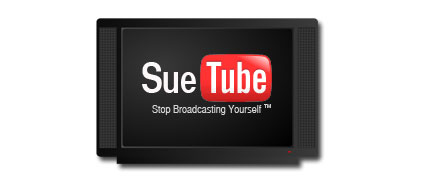Viacom, owners of MTV and Nickelodeon, has opted to sue YouTube.
Last month, Viacom, which also owns cable networks VH1 and Comedy Central, told YouTube to remove 100,000 “unauthorised” clips. Viacom said its demand came after YouTube and Google failed to install tools to “filter” the unauthorised video clips following negotiations. “There is no question that YouTube and Google are continuing to take the fruit of our efforts without permission and destroying enormous value in the process,” it said. full story at BBC
Viacom’s sueing for over a billion dollars, claiming its shows have been viewed over 1.5 billion times.
While Viacom is sueing, other broadcasters are leaping at the opportunity afforded by YouTube’s obvious success, using it to promote new shows and send out teasers.
Just ten days ago, the BBC set up a deal with YouTube, in the belief that the exposure will actually drive more traffic to their own web site. Other broadcasters are simply loading material on YouTube ad hoc, clearly with the intent of leveraging the kind of exposure YouTube can provide.
Deal or no deal, a quick search proves that every major broadcaster around the world has content on YouTube, and many of them are uploading it themselves.
By way of example, CTV,CBC, ABC, CBS, and NBC all have regularly updated content on YouTube. Even Canada’s staid National Film Board is using YouTube to reach new audiences, in both official languages no less…
Choose the winner!
The NFB invites the Canadian public of all ages to see the 20 shortlisted films in the contest and to vote for their favourite…Ces œuvres ont été créées par des jeunes aspirants cinéastes à la manière du génie de l’animation Norman McLaren.
www.nfb.ca/animation
There’s a good reason these broadcasters aren’t displeased their content is on YouTube. Not only does it provide huge exposure, YouTube pays the freight on serving the video.
Clearly Viacom sees things differently. Worth reading is Om Malik’s assessment of what’s going on.
